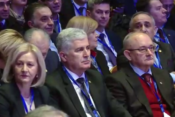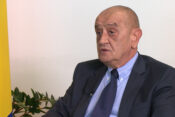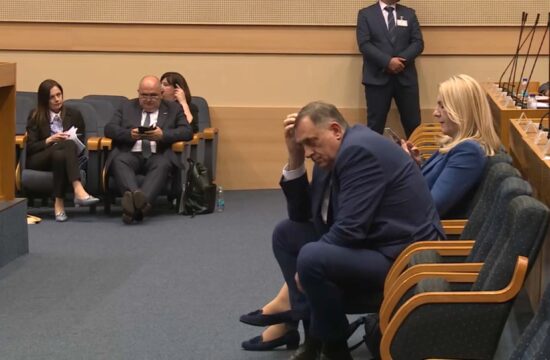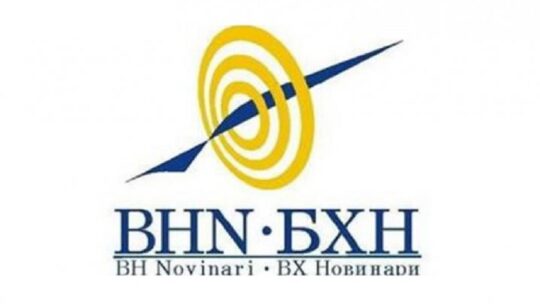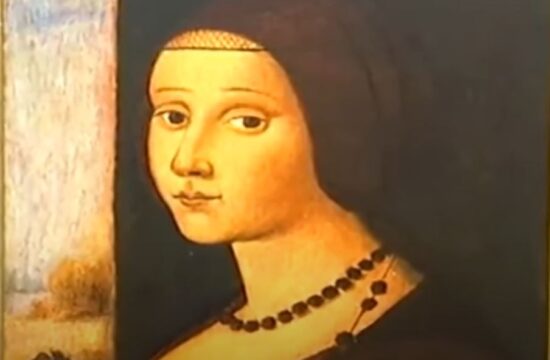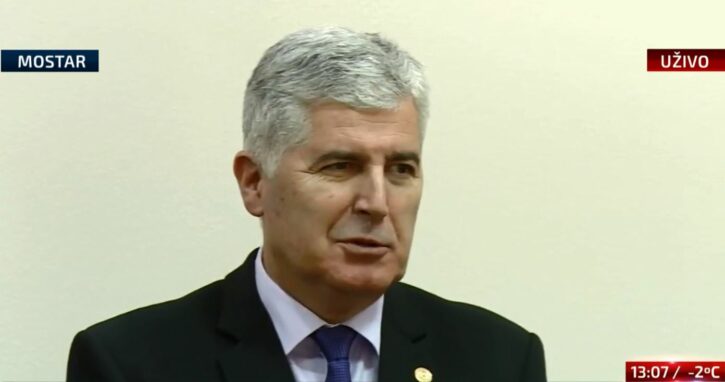
Bosnian Croat parties will continue to advocate for the federalisation of Bosnia as this would be the right path that could take Bosnia to EU and NATO membership as opposed to the separatism advocated by Bosnia’s Serbs or unitarism by Bosniaks, the leader of the Bosnian Croat National Assembly said Thursday.
Dragan Covic, who heads the body comprised of several Bosnian Croat parties, is also the head of the strongest Croat ethnic party, the Croat Democratic Union (HDZ).
The party ran a separate self-proclaimed statelet in the southwest of the country during the war, Herceg-Bosna, with the aim to separate it from Bosnia and turn it into part of neighbouring Croatia.
Because of the war crimes committed during the establishment of Herzeg-Bosna as a Croat-only territory, the statelet was labelled by the UN International Criminal Tribunal for the former Yugoslavia (ICTY) a joint criminal enterprise.
Herceg-Bosna administratively disappeared during peace negotiations that led to the end of the 1992-95 war but some HDZ officials have never given up on it and have recently renewed requests for its renewal.
Bosnian Croat parties have frequently requested a reorganisation of the country into three ethnic majority regions, instead of the current division into two, whereby the Serbs have their own entity and the Bosniaks and the Croats share the other.
Bosnian Serb leaders have, on the other hand, been advocating for the secession of their entity Republika Srpska, while Bosniaks want to maintain Bosnia within its pre-war borders and eliminate the administrative division based on ethnicity.
“The Croats are standing between two antagonisms, unitarism and separatism,” Covic said.
“That is why the middle path is federalism which builds up Bosnia and Herzegovina and steers it toward membership in the European Union and the NATO alliance,” he told Nasa TV, from Mostar, on Thursday evening.
He said it was a mistake that Bosnia was not granted EU candidate status by now as that would have accelerated other political processes in the country.
“Bosnia should have gotten the candidate status although we did not change the Election Law according to the ruling of the Constitutional Court on the appeal of Bozo Ljubic,” he said.
Covic referred to a lawsuit a Bosnian Croat won when he complained about the numerically dominant Bosniaks being able to elect Bosnian Croat representatives in the upper house of the parliament of Bosnia's Federation (FBiH) entity, the half of the country shared mostly by Bosniaks and Croats.
Bosnian Croat representatives have asked the Election Law to be changed in harmony with the Constitutional Court verdict in the case, but that has not happened yet as the leaders of the Croats and the Bosniaks cannot agree on how to change it.
The Croat representatives want the collective rights of ethnic groups to be dominant in the law and the Constitution while the Bosniak representatives believe that individual rights of citizens are more important than collective rights.
“We will insist on Croats electing legitimate representatives in the government, as now we have a farce with two Bosniak members of the Bosnian Presidency who were elected there by the Bosniaks,” Covic said, adding that this represents an attempt to create a unitary country where one ethnic group will be dominant.
He was referring to the election of left-leaning Zeljko Komsic to Bosnia’s tripartite presidency. Komsic is a Bosnian Croat but Bosnian Croat politicians have been complaining that he won the post thanks to Bosniak votes.
“All of this is an attempt to create a unitarist state in which one ethnic group will dominate,” Covic concluded.
Covic also commented on a recent session of the HNS and its Declaration which rejected a ruling by the International Criminal Tribunal for the former Yugoslavia (ICTY) that Herceg-Bosna was a joint criminal enterprise.
Covic said the ruling is being misused by the Bosniaks and that the Croat National Assembly will not let anyone discredit the role of the Bosnian Croat armed forces who defended the Bosnian Croats during the war.

